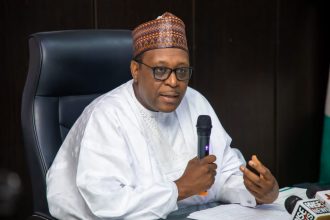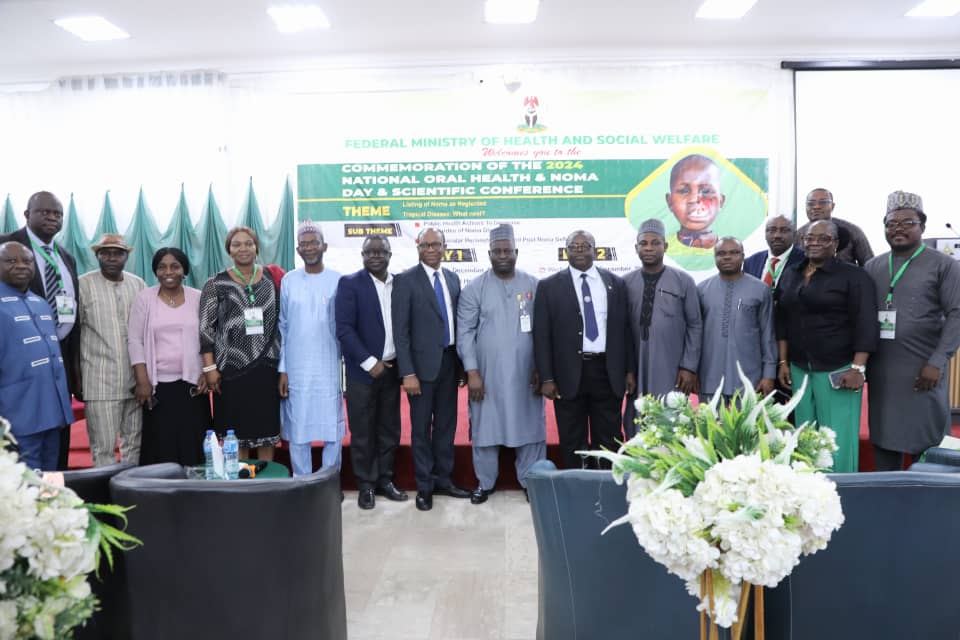The Nigerian government has revealed plans to work with state governments, health agencies and traditional leaders to fight the risk factors of Noma disease, thereby, finding ways of prevention strategies, and prioritizing oral health across the country.
It also expressed commitment to improve oral health through an integrated primary health care approach.
Dr. Iziaq Salako, the Minister of State for Health and Social Welfare, represented by Dr. Jimoh Salaudeen, Director of the Department of Hospital Services, while expressing government’s concern to addressing oral diseases, including Noma, said integrated primary health care approach is very crucial to improving oral health in the country.
“We are working with stakeholders to engage in programs that will strengthen workforce capabilities, especially through training healthcare workers, traditional rulers, and community officers for early detection and treatment of infections like Noma”, the Minister said on Tuesday at the 2024 National Oral Health and Noma Day and Scientific Conference in Abuja.
Describing Noma disease as non- contagious but, results from poor oral hygiene and acute malnutrition, disproportionately affects children aged 2 to 6.”It can rapidly eat away the soft and hard tissues of the face, often leaving the face of such individual with a poor cosmetic outcome and if left untreated resulting in death” the Minister said.
The health ministry introduced a policy aimed at addressing workforce challenges in rural areas, focusing on training healthcare providers at Primary Health Care Centers (PHCs) and improving access to care.Dr Salako said Nigeria has played active role at regional and international level, aligning with World Bank Africa regional efforts to bridge the knowledge gap about Noma.
This collaboration , he affirmed, has improved early detection, diagnosis and management of cases at the primary care level.”Nigeria joined this programme in 2016 and has been very active since then.
A Noma treatment Centre has been established within the National Hospital Complex and with other existing centres in Sokoto State. Nigeria is poised for the eradication of this highly preventable and treatable disease”, the Honourable Minister pointed out.
Permanent Secretary of the Ministry, Dr. Kachollom Daju, represented by Dr. Azeez Aderemi, Director of Specialty Hospitals, highlighted the link between Noma and factors such as malnutrition, poor oral hygiene, and weakened immune systems.
He reaffirmed the federal government’s commitment to offering free treatment for Noma patients, in collaboration with local and international partners.
“The federal government is working actively on public health actions to reduce the burden of Noma and other oral health diseases, with a focus on community education and an integrated primary healthcare approach,” Dr. Aderemi said.
Noma, often called “the face of poverty,” is a severe gangrenous infection primarily affecting children aged 2 to 6 years, leading to devastating damage to the face and soft tissues of the mouth.






